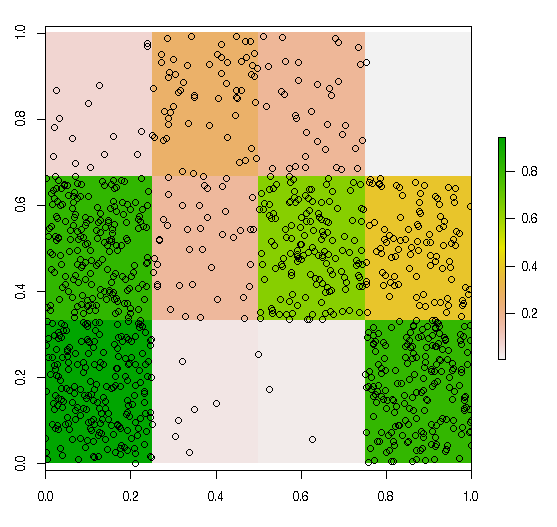I don't understand the "minimum distance" thing you mentioned.
Here's how to generate 1000 points uniformly within cells but with the number in each cell weighted by the cell value:
Make a test 3x4 raster with some positive random numbers:
> set.seed(12)
> r = raster(matrix(runif(12),3,4))
Get the cell half-width for later:
> hs = res(r)/2
Now work out which cell each of our 1000 points is going in by sampling from the number of cells (12) with replacement, weighted by the value in the cells:
> ptscell = sample(1:12, 1000, prob=r[], replace=TRUE)
Now find the centre of those 1000 cell numbers:
> centres = xyFromCell(r,ptscell)
And generate random uniform points in the cell by using the centre and the half-width/height from earlier:
> pts = cbind(runif(nrow(centres),centres[,1]-hs[1],centres[,1]+hs[1]),runif(nrow(centres),centres[,2]-hs[2],centres[,2]+hs[2]))
Voila:
> plot(r)
> points(pts)

